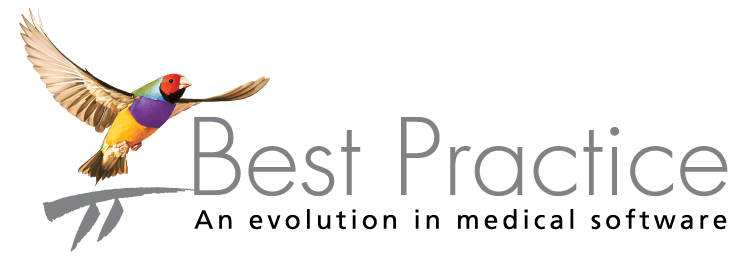Coffee and Cancer? Keep Drinking Your Daily Coffee but Not Too Hot
A Californian judge has ruled that coffee companies must put a cancer warning on coffee products because acrylamide, chemical produced in the roasting process is a carcinogen under California law. Companies, including Starbucks, failed to show that the risk posed by acrylamide in coffee was insignificant. (Of interest, no warning is required on calorie-dense, nutrient poor fast foods and drinks which are linked to obesity. Obesity has convincing evidence linked to increased risk of cancer of the oesophagus, pancreas, bowel, breast, endometrium and kidney and probable evidence of links to gall bladder cancer and many metabolic and cardiovascular consequences).
No new study or evidence has been published or produced regarding the cancer risk of coffee.
Acrylamide is formed when certain foods, particularly plant-based foods that are rich in carbohydrates and low in protein, are cooked at high temperatures such as frying, roasting or baking, the major foods contributing to exposure are potato chips and crisps, cereal-based products such as biscuits and pastries and coffee.
Food Standards Australia does advise that we reduce our exposure to acrylamide. There is no direct evidence that it causes cancer in humans, but evidence that it can cause cancer in Laboratory animals. International food regulators are working to reduce acrylamide levels with new farming and processing techniques such as lower cooking temperatures, enzymes to reduce formation and raw materials with lower reducing sugar levels. Reducing acrylamide in some products such as coffee is difficult without changing the taste. The amount of acrylamide varies dramatically in the same foods depending on several factors including cooking temperature and time. This is the reason the Joint WHO Committee on Food Additives (JECFA) experts do not issue recommendations on how much of any specific food containing the substance is safe to consume. For further information on strategies to reduce exposure see foodstandards.gov.au or who.int food safety/acrylamide.
The International Agency for Research on Cancer (IARC) announced in 2016 that there is no conclusive evidence to show coffee increases cancer risk (reversing a 1991 conclusion when the carcinogenicity of coffee was first tested, classifying the drink then as being possibly carcinogenic to humans) after reviewing over 1000 human and animal studies. Concluding that it is unlikely that coffee has any substantial effect on the risk of developing cancers of the pancreas, bladder, prostate or breast and suggesting a protective effect against the development of liver and endometrial cancers.
Drinking coffee (moderate amounts have been defined as drinking three to four cups per day) outside pregnancy, is more likely to benefit our health rather than harm, according to the results published in the BMJ of a study undertaken by the University of Southampton in 2017. The research involved a meta-analysis of observational and interventional studies examining the associations between coffee consumption and any health outcome in any adult population in all countries and all settings. Drinking coffee beyond the amounts given was not associated with harm, but the benefits were less pronounced.
Coffee is one of the most consumed beverages worldwide. Roasted coffee is a complex mix of over 1000 bioactive compounds, some with potential antioxidant, anti-inflammatory, anti-fibrinolytic or anticancer effects, The key active ingredients include caffeine, chlorogenic acids, the diterpenes, cafestol and kahweol. The existing research has involved the associations between coffee as an exposure and a range of outcomes including all-cause mortality, cancer and diseases of the metabolic, cardiovascular, neurologic, musculoskeletal, gastrointestinal and liver systems and pregnancy.
Consumption of coffee was associated with a lower risk of specific cancers including prostate, endometrial, melanoma, non-melanoma skin cancer and liver cancer.
Coffee consumption also had beneficial associations with metabolic conditions such as type 2 diabetes, gout, gallstones, metabolic syndrome, hepatic fibrosis and cirrhosis and chronic liver disease. There also appeared to be a beneficial association between coffee consumption and Parkinson’s disease, depression and Alzheimer’s disease.
Overall, there was no consistent evidence of harmful associations between coffee drinking and health outcomes except in pregnancy, where high caffeine intake was associated with low birth weight, preterm birth and pregnancy loss. Pregnancy recommendations are to limit caffeine intake to under 200 mg per day (one mug of filter coffee is 140mg, one mug of instant coffee 100mg, one mug of tea provides 75mg, one can of cola 40mg) . There was also a small increase in risk of fracture in women, but there was some discrepancy in the evidence suggesting further research is needed.
Decaffeinated coffee is compositionally similar to caffeinated coffee. The review found consuming decaffeinated coffee provided the cardiovascular, reduction in risk of type 2 diabetes, reduced lung cancer risk and endometrial cancer. There were no harmful associations between decaffeinated coffee and any health outcome.
There is evidence that cancer can be initiated by constant irritation of body surfaces (like skin and the lining of the mouth and oesophagus) Extremely hot water can provide this irritation (drinking beverages above 65 degrees). A recent evidence review by IARC concluded that drinking hot beverages above 65 degrees C probably causes oesophageal cancer in humans, but the relative contribution on oesophageal cancer rates requires further research.
Dr Lisa Surman, CBD West Medical Centre, Perth, WA
Member of Best Practice Software’s Clinical Leadership Advisory Committee
Often patients spend time talking about current medical and social issues, taking valuable time away from dealing with what they have really come in to discuss. One of our solutions is to direct them to news articles on our website written by a doctor in our Practice that outline current issues and offer strategies to manage the problem and links to relevant, reputable websites.
BMJ article BMJ 2017:359:j5024.
cancerwa.asn.au re cancer myth:coffee,tea,hot beverages and cancer,









